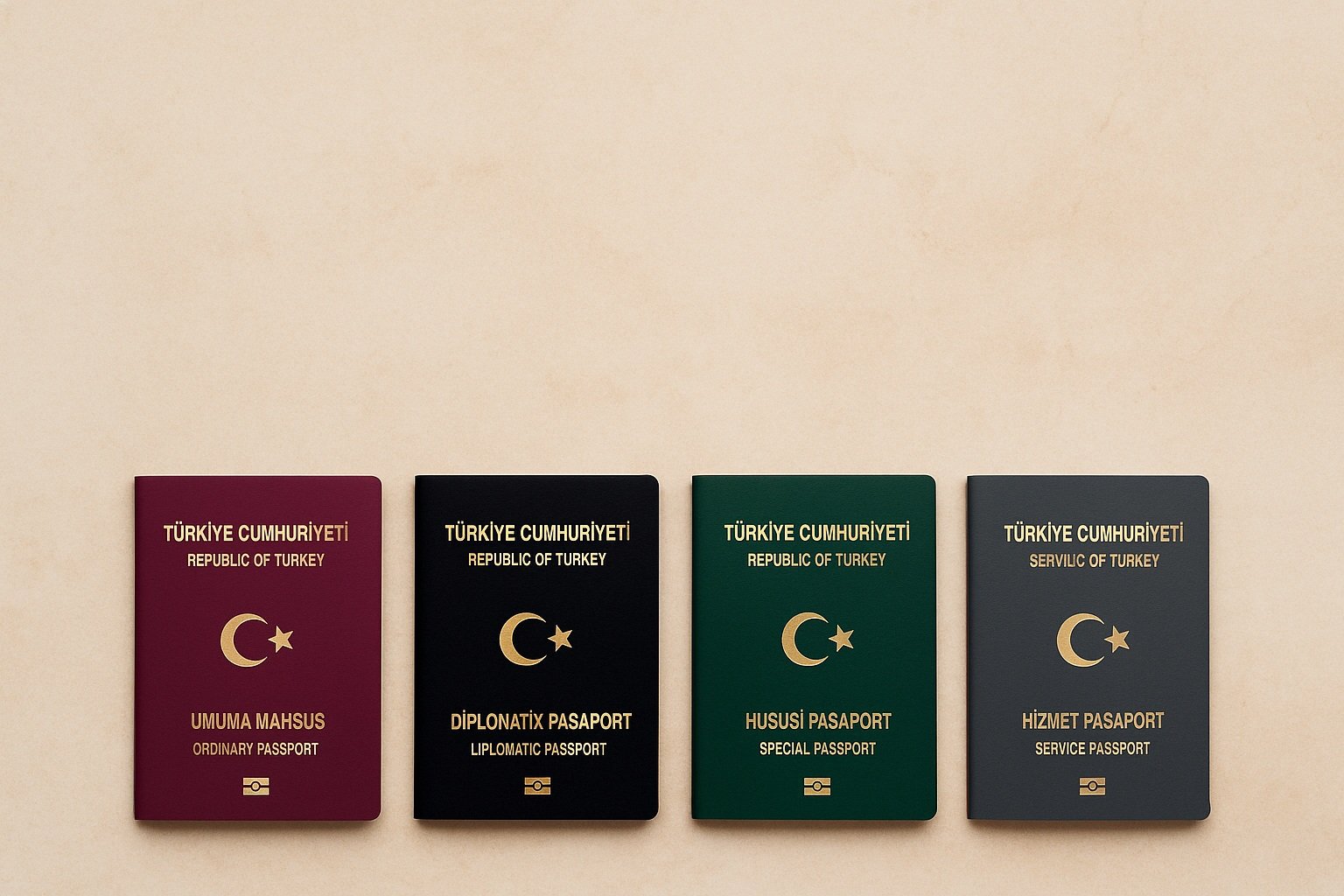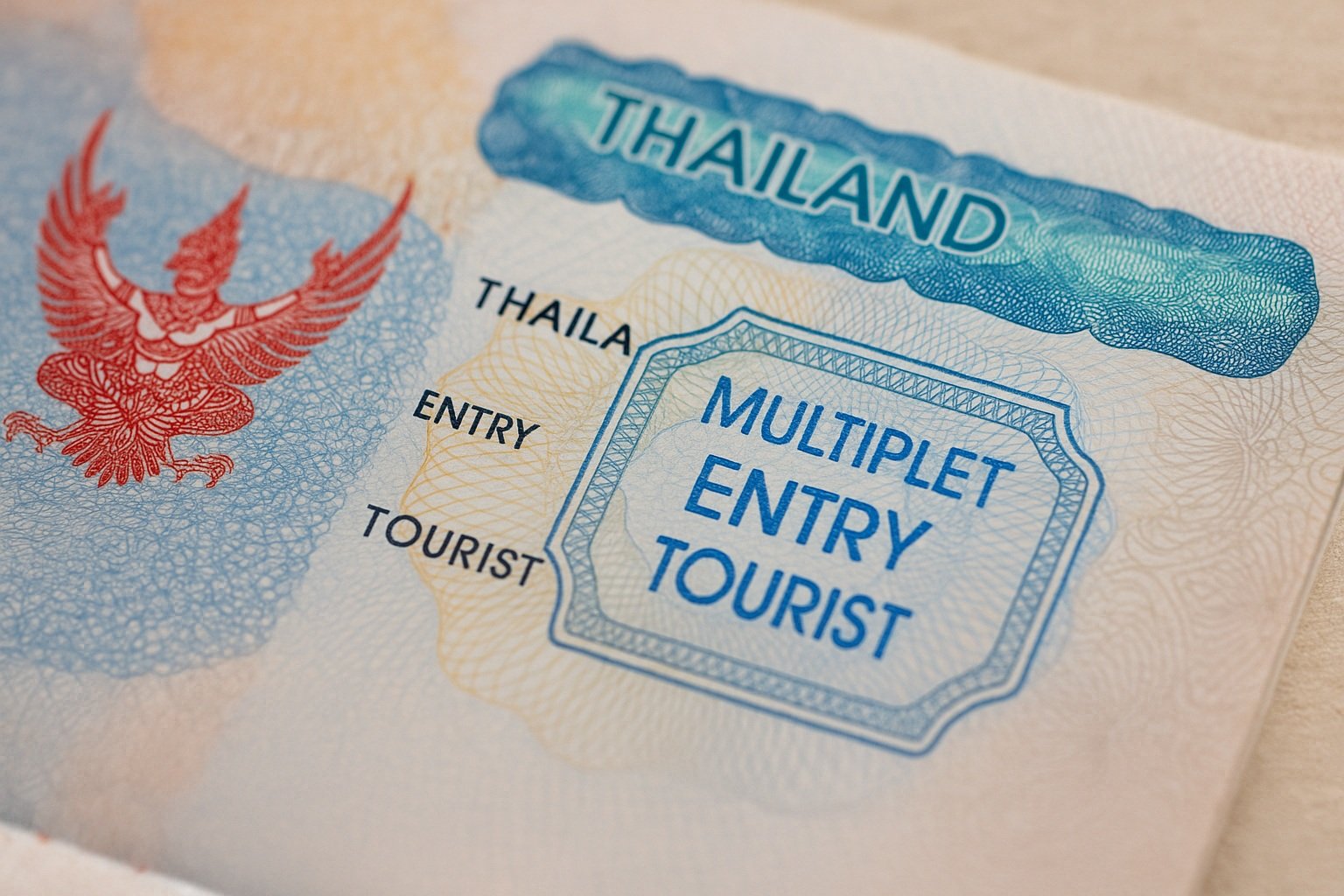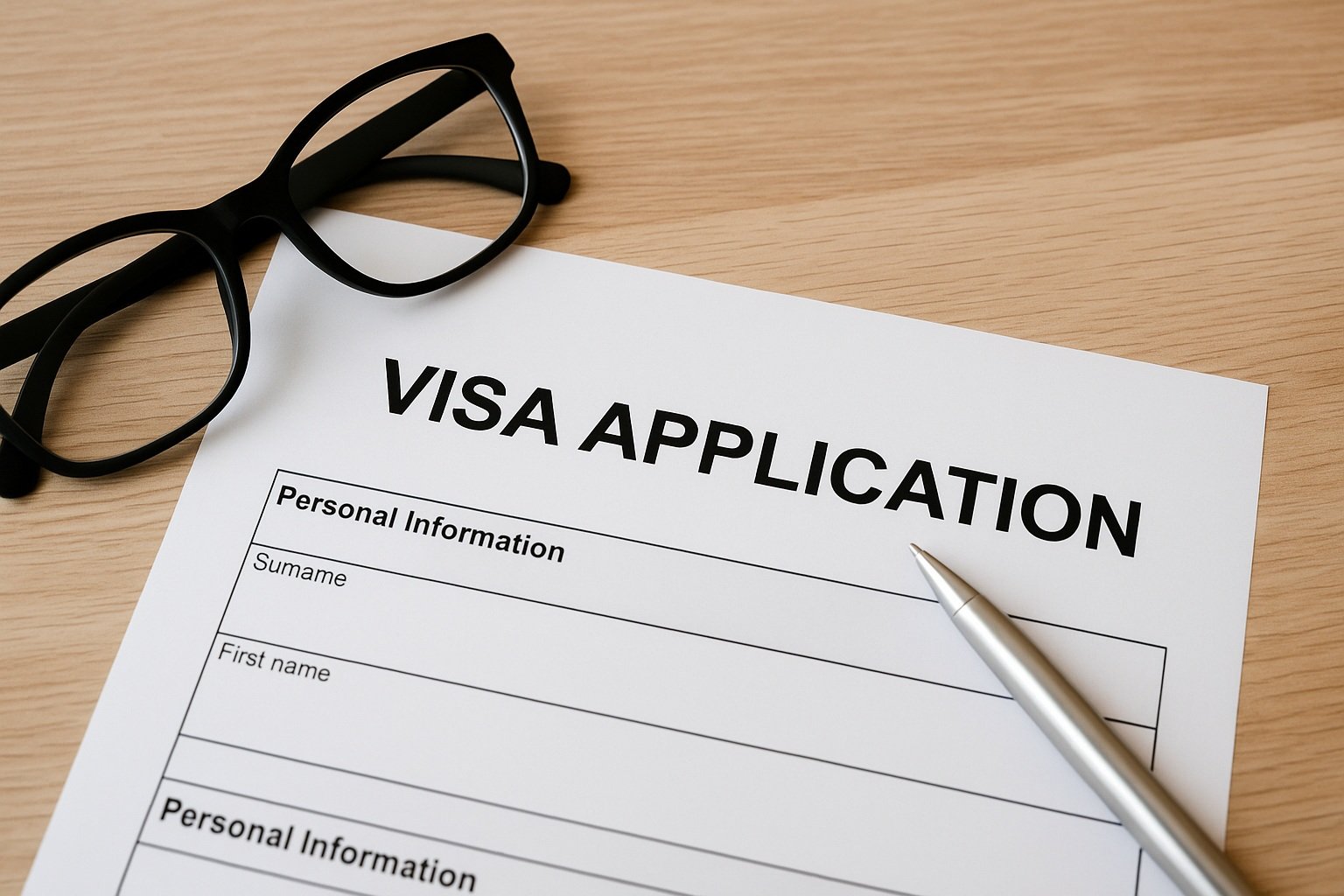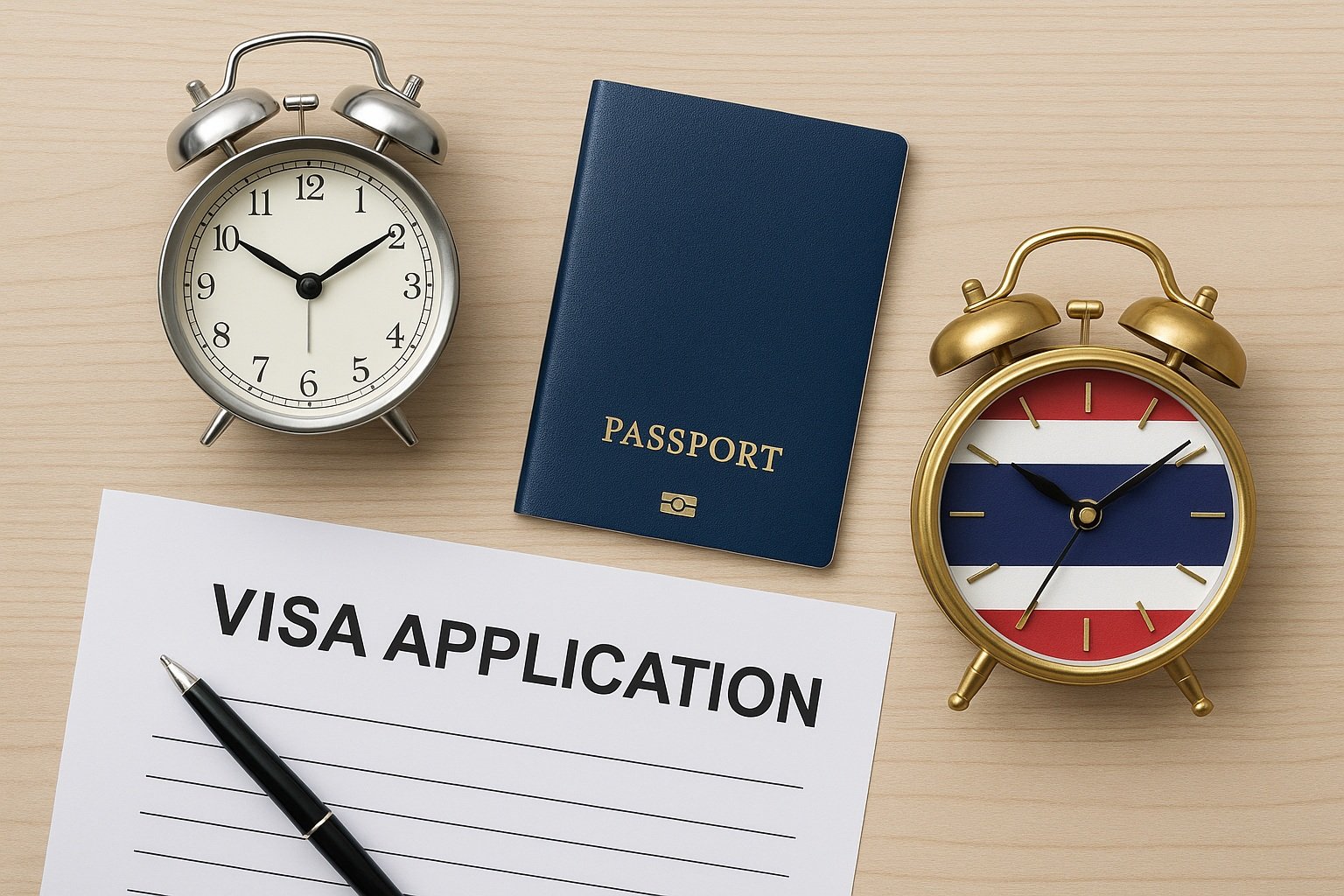Is a visa required to visit Thailand?
The visa requirement for visiting Thailand depends on the type of passport a person holds and agreements between countries. Holders of the ordinary (burgundy) passport of the Republic of Turkey are exempt from a visa for up to 30 days for tourist trips to Thailand. In other words, if the duration of the trip does not exceed 30 days and it is solely for tourism, there is no need to apply for a visa in advance. However, for visits exceeding this period, it is necessary to apply for a tourist visa from Thailand’s diplomatic missions in Turkey. Holders of diplomatic, special (green), and service (gray) passports benefit from visa exemption for longer periods. In addition, the passport must be valid for at least 6 months beyond the end date of travel. Therefore, those planning a visit to Thailand should check their visa status by considering their type of passport and length of stay.
With which types of passports and for how long can one remain exempt from a visa?

The visa exemption for Turkish citizens traveling to Thailand varies depending on the type of passport they hold. Holders of ordinary (burgundy) passports are exempt from a visa for up to 30 days when entering Thailand for tourism purposes. For stays exceeding this period, it is mandatory to obtain a tourist visa in advance. Holders of diplomatic (black), special (green), and service (gray) passports are more advantaged; persons holding these types of passports are exempt from a visa for up to 90 days for their visits to Thailand. However, for all passport types, the passport must be valid for at least 6 months at the time of entry into the country. Therefore, it is essential to check the validity of the passport before traveling and renew it if necessary.
What is the minimum passport validity period?
In order to enter Thailand, the passport validity period must be at least 6 months. This rule applies both to travelers benefiting from visa exemption and to those applying for a visa in advance. In other words, if your passport is not valid for at least 6 more months from the date of travel, your entry into Thailand will not be accepted. It is also important that the passport has blank pages for entry and exit stamps. Therefore, those planning a trip to Thailand should check their passport validity beforehand and renew it if necessary.
What documents are required for a tourist visa?
Applicants for a Thailand tourist visa must prepare certain documents. First, a passport valid for at least 6 months and a fully completed and signed visa application form are required. In addition, a biometric passport-sized photo, a flight ticket reservation showing travel dates to and from Thailand, and accommodation documents such as a hotel reservation or an invitation letter proving where the applicant will stay are requested. Furthermore, a bank statement demonstrating that the applicant can cover expenses during the trip must be submitted. If deemed necessary, the consulate may also request additional documents. All these documents are important for the successful approval of the application and smooth entry into Thailand.
What is a multiple entry tourist visa and what are its conditions?

A multiple entry tourist visa is a special type of visa that allows multiple entries and exits to Thailand for tourism purposes. This visa is usually valid for 6 months and grants the right to stay up to 60 days for each entry. In other words, during the visa validity period, you can enter Thailand multiple times and stay for two months on each entry. To apply for this visa, in addition to the documents required for a standard tourist visa, the applicant must provide documents proving that they have a regular income or sufficient financial means. Furthermore, for a multiple entry visa, the consulate also takes into consideration the applicant’s travel history and entry-exit record to the country. It is a highly advantageous option for those planning long-term travel, those who wish to visit Thailand frequently, or those planning to travel between countries in Southeast Asia.
Can one work in Thailand with a tourist visa?
Working in Thailand with a tourist visa is strictly prohibited. This visa is granted only to those visiting the country for tourism purposes and provides temporary stay rights. Holders of a tourist visa cannot work in any job, engage in commercial activities, or earn income. Those who wish to legally work in Thailand must obtain a work permit through an employer and apply for an appropriate work visa (Non-Immigrant B Visa). If working with a tourist visa is detected, the individual may face serious penalties such as fines, deportation, and even re-entry bans. Therefore, it is very important for those planning to work in Thailand to apply for the correct type of visa.
Where to apply for a visa — Ankara Embassy or Istanbul Honorary Consulate?
Thai visa applications in Turkey are made through the Royal Thai Embassy in Ankara. This is the institution officially authorized to issue visas. The Honorary Consulate of Thailand in Istanbul can only provide information, forward documents, and offer limited support services; however, it does not have the authority to directly accept or approve visa applications. Therefore, those traveling to Thailand must submit their applications to the Embassy in Ankara after preparing the required documents. Applications can be made in person or, if necessary, sent by courier/mail, but for the most accurate and up-to-date procedure, the official announcements of the Embassy should be followed.
How to fill out the visa application form — online or physical?

The Thailand visa application form is generally filled out physically and submitted to the Royal Thai Embassy in Ankara along with other documents during the application process. The form must include essential information such as personal details, passport information, purpose of travel, accommodation address, and contact details, all completed accurately. It is very important that all information is correct, up-to-date, and consistent with the passport; otherwise, the application may be rejected. The form can be filled out by hand in capital letters or prepared on a computer and printed. At present, there is no fully online application system for tourist visas submitted from Turkey, but it is possible to access and download the latest version of the form from the official website of the Embassy and fill it out.
How long is the tourist visa granted for?
Thailand tourist visas usually grant the applicant the right to stay in the country for 60 days. This period begins from the date of entry into the country and can only be used for tourism purposes. If you wish to extend your trip, you can apply to the Immigration Bureau in Thailand to request an additional 30 days. In this way, the total stay can be extended up to 90 days. However, those who wish to stay beyond this period must apply for different types of visas. Therefore, when planning a trip, it is important to consider the limits of the duration granted with a tourist visa.
Is it possible to extend a visa, and how?
Yes, it is possible to extend a tourist visa in Thailand. Persons entering the country with a tourist visa can apply for an extension at the Immigration Bureau before their stay expires. Generally, the additional period granted for tourist visas is limited to 30 days. For the extension application, a passport, a copy of the current visa, the application form, a biometric photo, and the designated extension fee must be submitted. Applications are made in person and are often finalized on the same day. However, it should be remembered that the maximum total stay allowed is up to 90 days. Exceeding this period results in an illegal stay and may lead to penalties such as fines or deportation.
How much is the visa fee?
Thailand visa fees vary depending on the type of visa applied for. The fee set for a single-entry tourist visa is usually around 35–40 US dollars. For multiple entry tourist visa applications, the fee is higher, reaching approximately 170–180 US dollars. Fees are paid in full at the time of application and are non-refundable. In addition, small differences may occur due to the exchange rate used during the application, consular policies, and periodic updates. Therefore, it is important to check the official announcements of the Royal Thai Embassy in Ankara to learn the most up-to-date visa fee.
Are flight tickets and accommodation reservations required?

Yes, flight ticket and accommodation reservation documents are generally required for Thailand tourist visa applications. The consulate wants to see that the applicant is genuinely traveling for tourism purposes and will return. Therefore, a flight ticket reservation showing the departure and return dates to Thailand, as well as documents proving where the applicant will stay during their stay in the country, such as a hotel reservation or an invitation letter, must be submitted. During applications, reservation documents are often sufficient instead of actual purchases. This both facilitates visa procedures and provides concrete proof of the applicant’s travel plans.
How much should the bank account statement showing financial status be?
In Thailand tourist visa applications, the applicant must demonstrate that they have the financial means to cover expenses during the trip. Therefore, the consulate generally requires a bank account statement covering the last 3 months. The amount required in the account varies depending on the length of stay but is generally recommended to be at least 20,000 Thai Baht (approximately 500–600 US dollars) per person. For family or group travel, a total balance of around 40,000 Baht is required. It is important that the bank statement is officially stamped and signed, and that it shows sufficient balance activity. This document is a critical element to prove that the applicant can stay in Thailand during the legal period without financial difficulties.
Are there visa on arrival or electronic visa (e-visa) options?
For Turkish citizens traveling to Thailand, there is a visa on arrival option. With this application, a tourist visa valid for 15 days can be obtained at the border by applying upon entry to the country. However, since this period is insufficient for long trips, it is generally preferred for short visits. For a visa on arrival application, a passport, biometric photo, return flight ticket, accommodation details, and documents showing sufficient financial means must be presented. In addition, in recent years Thailand has also introduced an electronic visa (e-visa) system for some countries. For Turkish citizens as well, it is possible to apply through the e-visa system, allowing online applications without having to go to the consulate. However, since current practices and validity conditions may change, it is important to check the official announcements of the Royal Thai Embassy before traveling.

Although an online entry form or an electronic travel authorization (ETA) application that passengers must complete upon entry to Thailand is occasionally discussed, there is currently no mandatory ETA system for Turkish citizens. Passengers traveling from Turkey to Thailand are generally required to fill out the entry form (Arrival Card) provided at passport control upon entry into the country. This form includes basic information such as personal details, passport number, accommodation address, and purpose of travel. Although additional health forms and online registration systems were implemented during the pandemic, the standard entry form remains valid in the current situation. However, since changes may occasionally occur in Thailand’s immigration and visa policies, it is recommended to follow the official announcements of the Royal Thai Embassy before traveling.
What should be done in case of a visa rejection?
In the event of a Thailand visa application being rejected, it is important first to learn the reason for the refusal. Applications are usually denied due to incomplete or incorrect documents, insufficient financial status, unclear demonstration of travel purpose, or security concerns. In such cases, a new application can be submitted after addressing the deficiencies or correcting the errors. Although there is a right to appeal the decision, in most cases the most practical way is to reapply with completed documents or stronger evidence. In addition, reviewing the official announcements of the Royal Thai Embassy before applying, preparing documents in accordance with current requirements, and applying carefully increase the likelihood of obtaining a visa.
What are the special conditions (visa exemption, duration changes, etc.) for Turkish citizens?
There are some special regulations for Turkish citizens traveling to Thailand. Holders of ordinary (burgundy) passports are exempt from a visa for up to 30 days for tourist trips to Thailand. In other words, they can enter the country without obtaining a visa in advance. However, for stays exceeding this period, it is mandatory to apply for a tourist visa through the Thai Embassy in Ankara. Holders of diplomatic, special (green), and service (gray) passports can travel without a visa for up to 90 days. In addition, Thailand also offers Turkish citizens the option of a visa on arrival, which allows a stay of up to 15 days. However, the passport must be valid for at least 6 months beyond the end of the trip, and sufficient blank pages must be available for entry and exit stamps. Therefore, Turkish citizens should choose the appropriate exemption or visa option depending on the duration of stay and type of passport.
How long does it take for a visa application to be processed?

